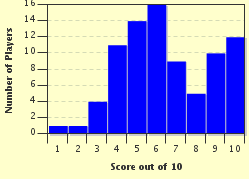Quiz Answer Key and Fun Facts
1. Which poet wrote: "She walks in beauty, like the night / Of cloudless climes and starry skies"?
2. Tennyson's "Locksley Hall" begins with which of these lines?
3. Which poem by Matthew Arnold contains these lines?
"The sea is calm to-night / The tide is full, the moon lies fair / Upon the straits;-on the French coast the light / Gleams and is gone; the cliffs of England stand / Glimmering and vast in the tranquil bay."
4. Which John Keats poem contains the line: "A thing of beauty is a joy forever"?
5. "Turning and turning in the widening gyre / The falcon cannot hear the falconer" begins "The Second Coming" by which great poet?
6. Which of these lines can be found in "The Waste Land" by T.S. Eliot?
7. Which poet wrote: "...Love is not love / Which alters when it alteration finds / Or bends with the remover to remove"?
8. Which poem by Alexander Pope includes these lines: "Fools rush in where angels fear to tread" and "To err is human, to forgive divine"?
9. Which poet wrote "Elegy Written in a Country Church-Yard"? He also wrote "Ode on the Death of a Favourite Cat" and "The Progress of Poesy".
10. Samuel Taylor Coleridge included which of these lines in "The Rime Of The Ancient Mariner"?
Source: Author
lowtechmaster
This quiz was reviewed by FunTrivia editor
looney_tunes before going online.
Any errors found in FunTrivia content are routinely corrected through our feedback system.

